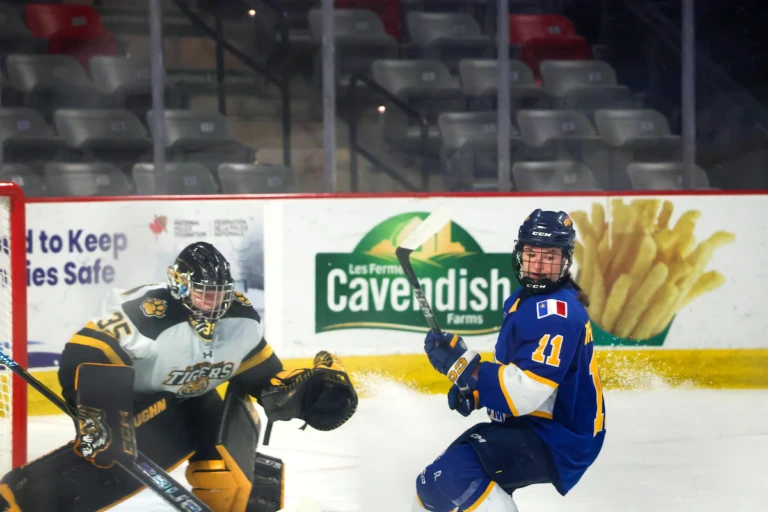
How are all these people getting together? … When we can’t even get an explanation
In a generation filled with emotional detachment, should ghosting belong in the grave?
Last month, my roommate Kelsi and I were getting ready for a night out. She was at her desk, meticulously painting on winged eyeliner, while I sat on the bed, gin and tonic in hand.
I blared our usual getting-ready mix when Janet Jackson’s “Someone to Call My Lover” was suddenly interrupted by a ping. I smiled when I saw the name and called out, “Hey Kelsi, guess who texted me?”
That smile faded as I read the message.
—-
A few weeks earlier, Grant — a guy I knew from first year — asked me out for drinks. He said he’d text to set something up after getting back from a trip.
I read the message out loud to Kelsi. Grant said he recently started seeing someone and couldn’t get drinks anymore. He explained it had nothing to do with me and he was sorry.
It was straight-up rejection. So why did I feel relieved?
Kelsi and I talked about how refreshing his message was. It proved he’s a nice guy — who actually took the time to let me know he was cancelling, instead of just ghosting.
Wow, that’s sad.
How can we hope for the bare minimum when we don’t even expect an explanation?
Ghosting has become normal, and even anticipated. When things are going well with someone, I’ll joke to friends that it’s about time to never hear from him again.
That joke usually becomes reality.
I know how exhausting ghosting can be, having experienced it a few times myself. Longer response times, dryer text conversations and general signs of pulling away all send my brain into overdrive. I unconsciously make excuses for their silence when they haven’t even offered any, rationalizing to drown out the nagging truth. All this uncertainty breeds anxiety, so I much preferred being told straight-up what’s going on.
Later that night, I ran into my friend Andrew and told him what happened. He was surprised and even commended Grant. Andrew admitted that if he were in Grant’s shoes, he would’ve just ghosted. He says it might be an asshole move, but it’s easier.
It’s almost impossible to find people who haven’t either ghosted or been ghosted. Depending on whether you’re the ghoster or ghostie, it can be a modern convenience or a curse.
But not everyone minds.
“I don’t need someone who doesn’t know me as a person to tell me why they don’t like me,” my friend Hazel said.
She thinks ghosting is conditional. If you’re seeing someone regularly, communication is deserved, but if there’s no emotional attachment, an explanation isn’t necessary. It could even be hurtful.
Emotional attachment can be hard to gauge. These days, you never really know if your name is one of many on a long list of delivered texts or the one they’re waiting to see pop up in the morning.
In my experience, men can take advantage of how a lack of emotional attachment is inherent to our hookup culture. It’s more and more common for people to start seeing someone with zero emotional attachment and continue on that way, even in long term or regular situations where attachments would naturally grow. This lets people unfairly label others, especially women, as “crazy” for being upset about being ghosted. It shifts blame, when really, the ghoster is actually taking the easy (and shitty) way out.
No matter what level of emotional attachment you think exists, it’s better to err on the side of caution. Assume it might upset someone to go from constant contact to never hearing from you again. We need a reset to basic respect when it comes to ending things. It’s not “crazy” to be upset over ghosting. Any form of rejection stings, especially the kind that leaves you confused.
That’s why I really appreciated Grant’s message.
Before, I would’ve been in limbo, wondering why he hadn’t reached out. Did he change his mind? Was I the problem?
Now I know: stuff happens. C’est la vie.
If you’ve both made an effort to explore a connection, it’s not asking too much to send a quick, “Hey, it was nice meeting you, but I’m just not [insert reason here].”
The rule I try to stick to is: if we’ve met in person, even just once, for a date or whatever reason, you deserve to know if I’m no longer interested. Everyone deserves respect.
Grant’s message reminded me of that. It even made me scroll back and text someone I’d unintentionally ghosted after life got busy, and I genuinely forgot. I don’t know how that person felt about my explanation, but it cleared my conscience.
If you’re single, chances are you’ll get ghosted at some point. Just remind yourself that if they couldn’t respect you enough to give a quick explanation, how much respect would they have brought to a relationship?
We can’t control others’ actions. All we can do is try to be better and not take the easy way out when it’s our turn to end things.






